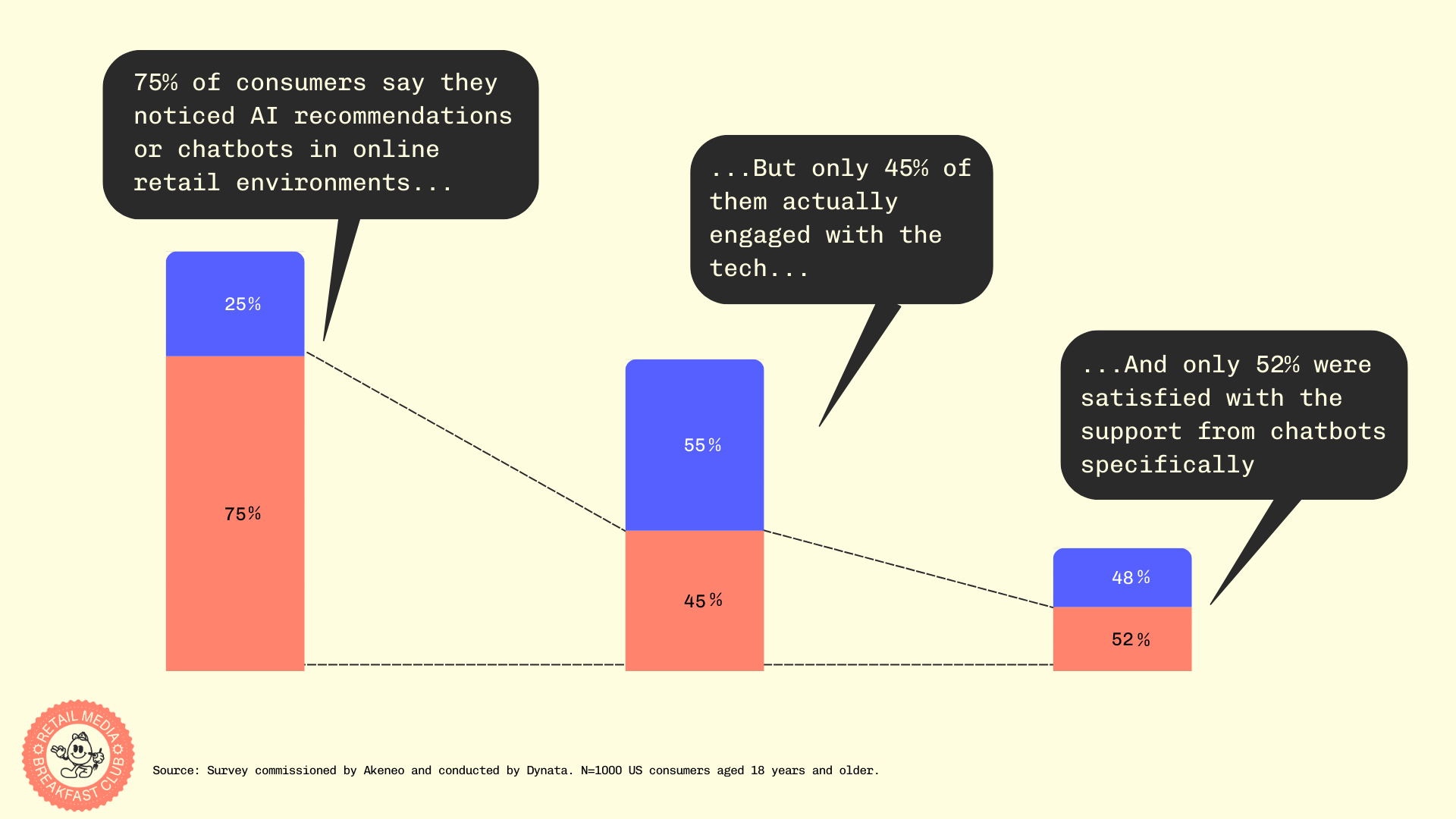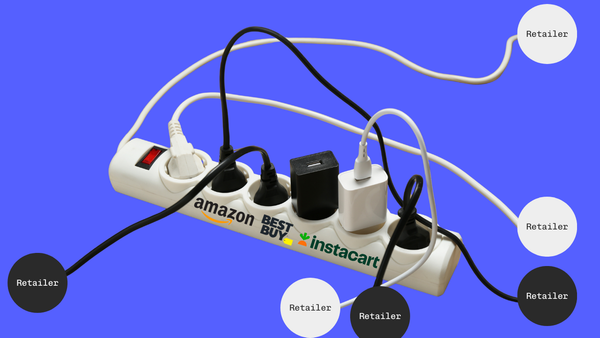55% of consumers say they don't trust AI shopping chatbots & recommendations
While 75% of consumers have encountered AI recommendations or chatbots online, only 44% actually engaged with them.

In yesterday's newsletter, when talking about how retailers should be considering how consumer AI agents will be interacting with their website, I stuck a bold flag in the sand: "The experience of many AI assistants on retailer sites is underwhelming." In a typical crisis of confidence I later wondered if I had been too harsh on these chatbots, or painted too broad a brush based on my own N=1 experience.
But I found some new research that validates this.
Akeneo, a product experience and product information management company, recently released new data revealing how U.S. consumers are navigating the rise of AI in their online shopping journeys.
Their survey of 1000 consumers found that while 75% of consumers have encountered AI recommendations or chatbots online, only 44% actually engaged with them. Yikes.

So, consumers say they don't like AI.
Akeneo's survey says only 45% of consumers have some level of trust in AI-powered recommendations and chatbots.
I can't say I'm shocked, but let me argue the other side for a second.
Here's the issue with self-reported preference surveys. We are abysmal predictors of our own future behavior. We're only slightly better at recalling our past behavior, especially when it comes to technology we don't fully understand.
When Amazon introduced AI-generated customer review highlights in August 2023, they didn't announce it with fanfare. The Verge reported that Amazon quietly tested this feature, rolling it out to "a subset of users in the US on Amazon's mobile app" across products like TVs, headphones, tablets, and fitness trackers. Today, these review summaries are one of the most popular features on Amazon's product pages.
Here's the key: most consumers using these summaries just see helpful bullet points that tell them what 847 reviewers said about battery life or build quality. They think "this is useful," not "this is AI."
In the Akeneo survey, participants noted areas where they feel AI has already improved their experience:
- 37% of consumers have noticed AI being used to improve product recommendations
- 33% have noticed faster customer support
- 31% have experienced improved or more accurate search results
- 28% have reported better product information and descriptions
- 27% have noticed improved AI summaries of customer reviews
So when asked "do you trust AI shopping assistants?" many consumers likely picture obvious chatbots and answer "no," while simultaneously appreciating dozens of AI-powered improvements they don't even recognize as artificial intelligence. Consumers benefit from AI daily without recognizing it as such.
Just don't come at me with your chatbot.
As I argued in yesterday's newsletter, retailers are building chatbots that consumers avoid, even as those same consumers increasingly become co-dependent on ChatGPT as their work sidekick, life coach, and best friend. They won't trust your retailer.com chatbot to help pick out an outfit for their first game of Padel, but they will certainly ask for styling advice from ChatGPT.
It seems that despite the early numbers showing positive experiences with AI, retailers and brands must proceed with caution. Using AI to summarize results and reviews? Yes please. Using AI to build out woefully inadequate product page info across all buying channels? No-brainer. Foisting an annoying AI chatbot on me? No thanks.
Further reading:





